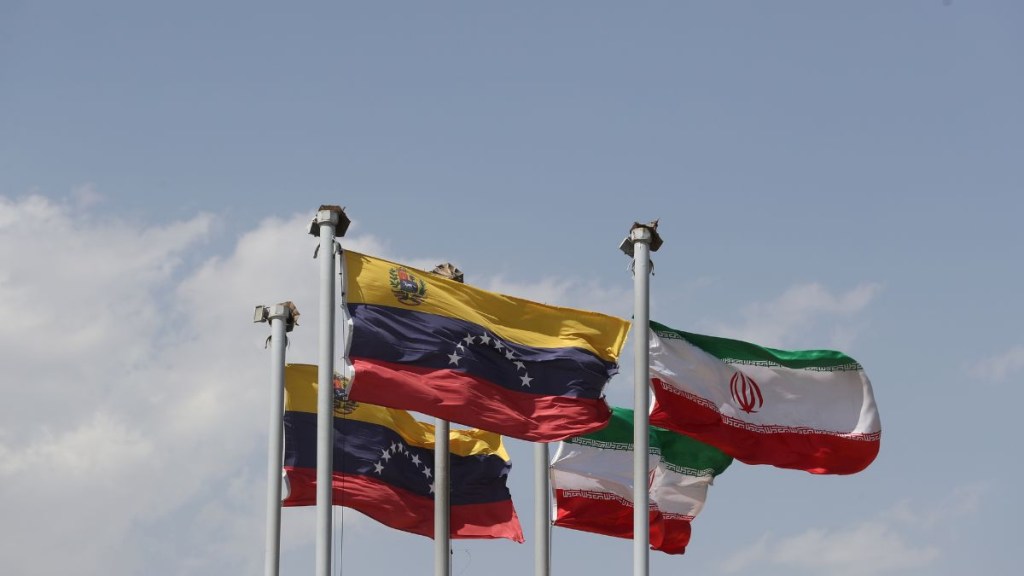Venezuelan President Nicolas Maduro and Iranian President Ebrahim Raisi signed a significant 20-year cooperation agreement on Saturday, strengthening ties between the two countries. This agreement follows Iran’s provision of much-needed fuel to Venezuela, despite facing US sanctions. The Venezuelan leader expressed gratitude for Iran’s support, stating that the fuel delivery greatly aided the Venezuelan people.
Maduro’s visit to Iran coincides with the Middle East‘s heightened tensions due to the collapse of Iran’s nuclear deal with world powers. Iran’s economy is under strain from US sanctions and rising global food prices, further adding pressure on the government and its citizens.
Sharing his views on Iran helping in the South American nation’s refinery operations, Md. Muddassir Quamar, Ph.D. Associate Professor, Centre for West Asian Studies, School of International Studies, JNU says: “Iran and Venezuela have always maintained good relations. What they call the partnership between resistance economies. There are potentials for them to collaborate with the ongoing energy geopolitics, it acquires some significance.”
Adding, “But the size of their economies and the aging technology limits the potential for any serious international or regional impact.”
Based on the reports in the public domain, the comprehensive 20-year agreement encompasses the expansion of cooperation in oil, petrochemical industries, military collaboration, and the economy.
Ahead of a press interaction over the weekend, Maduro had highlighted that the discussions between the two leaders would address countering the impact of sanctions with resilience and informing their nations about the challenges they face. He highlighted the common vision shared by Venezuela and Iran on international issues and the shared experiences of both nations as victims of coercive measures imposed by the United States and its allies.
Last week the Biden administration did not invite Venezuela, Cuba, and Nicaragua to the Summit of the Americas due to concerns about authoritarianism and human rights violations. This decision led to the Mexican president’s announcement that he would not attend the summit.
Venezuela has decided to commence a direct flight between Tehran and Caracas, strengthening transportation links between the two countries.
Earlier, Iran delivered the oil tanker Aframax-2 to Venezuelan officials, marking the second of four vessels Iran was contracted to build for Venezuela.
Bilateral Relations between Iran & Venezuela
The relationship between Iran and Venezuela is characterized by shared interests, mutual support, and defiance against US influence. Both countries have been subject to US sanctions and have faced international isolation, which has led them to seek closer ties as a means of countering external pressure.
Both countries have engaged in various ventures. Iran has provided Venezuela with crucial assistance in the form of fuel shipments, aiding Venezuela’s energy needs in the face of domestic challenges and US sanctions. Venezuela, in turn, circumventing US restrictions has provided Iran with access to its vast oil reserves and served as a potential market for Iranian goods.
Military Cooperation
Iran has reportedly provided military support and expertise to Venezuela, including training and equipment, while also assisting in the development of Venezuela’s defense capabilities. This collaboration is driven by their shared perception of being targeted by the United States and their desire to bolster their defense capabilities.
It is important to note that the relationship between Iran and Venezuela is not universally accepted and has drawn criticism from countries concerned about their activities. The United States and some of its allies view these ties as a challenge to regional stability and international norms.

